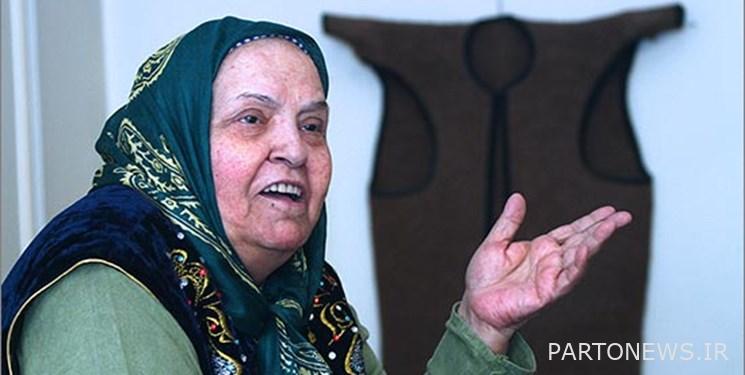The shadow of the death of the mother of Iranian lullabies on the opening of the Qashqai regional festival / mourning

According to the Fars News Agency’s music correspondent, the 14th Regional Music Festival of Iran started while Parvin Bahmani (Iran’s lullaby lady) passed away minutes before the opening ceremony and affected the atmosphere of the festival.
The garden of the Vaziri Museum of Kerman hosted a group of artists and music lovers on the evening of October 20, which was spent with the instruments and songs of relatives.
At the beginning of the ceremony, Mohammad Reza Alizadeh (Director General of Kerman Guidance Office) read the message of the Minister of Culture and Islamic Guidance to the 14th Regional Music Festival of Iran and then Mohammad Ali Marati (Festival Secretary) said in a speech: We lost. In the fourteenth festival, we were honored to use Damon Sheshbloki (Qashqai music researcher), the living son of Parvin Bahmani, in the festival selection committee and in the selection of works. Parvin’s soul watches our performance.
The audience was then asked to observe a minute of silence in honor of the artist’s soul.
Referring to the theme of the festival “Unity in the musical multiplicity of Iranian ethnic groups”, he continued: “This year’s festival begins with the performance of Qashqai horns and drums and the performance of Master Karimnejad, who will begin their mourning with respect to the spirit of Parvin Bahmani.”
After this performance, it was the turn of the Turkmen and Ahmad Sadri (regional music researcher) explained about this performance: The Turkmen region of the desert is facing the sea and facing the desert. The plain is influential in Turkmen music, and the other is the horse, which is evident in the music of the region. On the other hand, their percussions are just like their language, which is a throwing dialect, and there is a close relationship between their language and their music.
In the Turkmen Sahara region, we have prominent dotar musicians, the best of whom will perform tonight.
Then the Turkmens under the leadership of Ibrahim Jorjani Roy
They left the scene.
Then it was the turn of Timur Mehrabi and Houshang Amiran to perform on stage. Prior to the performance, Sadri provided technical explanations about Hooreh’s song and spoke about its similarity to instrumental music.
After that, it was the turn of the music of the south of the country and Fouad Tohidi (researcher of regional music) explained about the performance: Kerman is a rainbow of music and has more than 35 types of instruments and more than 30 dances. Kerman music is very diverse. The musicians of the group are from Qala-e-Ganj area, but tonight the music has the mood of Baluch music.
Then Shahram Mirzaei performed on stage.
Then it was the turn of Donnelly’s leaner, and Tawhidi explained: “One of the genres we have tonight is music therapy, which leaner performs this music with a Donnelly instrument.”
In another part of the Marati Festival (the festival secretary) invited Mohammad Shekarchi to perform and said: Mr. Shekarchi is one of the few Lori fiddle players whose originality is rippling in his works.
Hunter’s performance was well received by the audience.
In another part of his speech, Marati said: “In this event, we tried to have a rainbow of Iranian ethnic music based on the theme of the festival.”
Our axes in the festival of tradition as the identity of ethnic music, originality (as a meter and criterion for not harming this music) and intra-ethnic and inter-ethnic creations.
Then Ahmad Sadri invited Master Gholam Hossein Vafaei to come on stage with his group and this group also performed a piece in the presence of the Holy Prophet (PBUH).
Then, Mohammad Ali Marati came on stage and spoke about the position of women in the regional music festival of Iran and added: “This position could certainly be higher, but we used the existing capacities in this festival.” Then Marati invited Zohreh Valinejad, the son of Suleiman Valinejad, to come on stage for a duet.
Finally, the first night of the festival ended with Saleh Ahmadpour from Kish Island.
End of message /
You can edit this post
Suggest this for the front page
.

